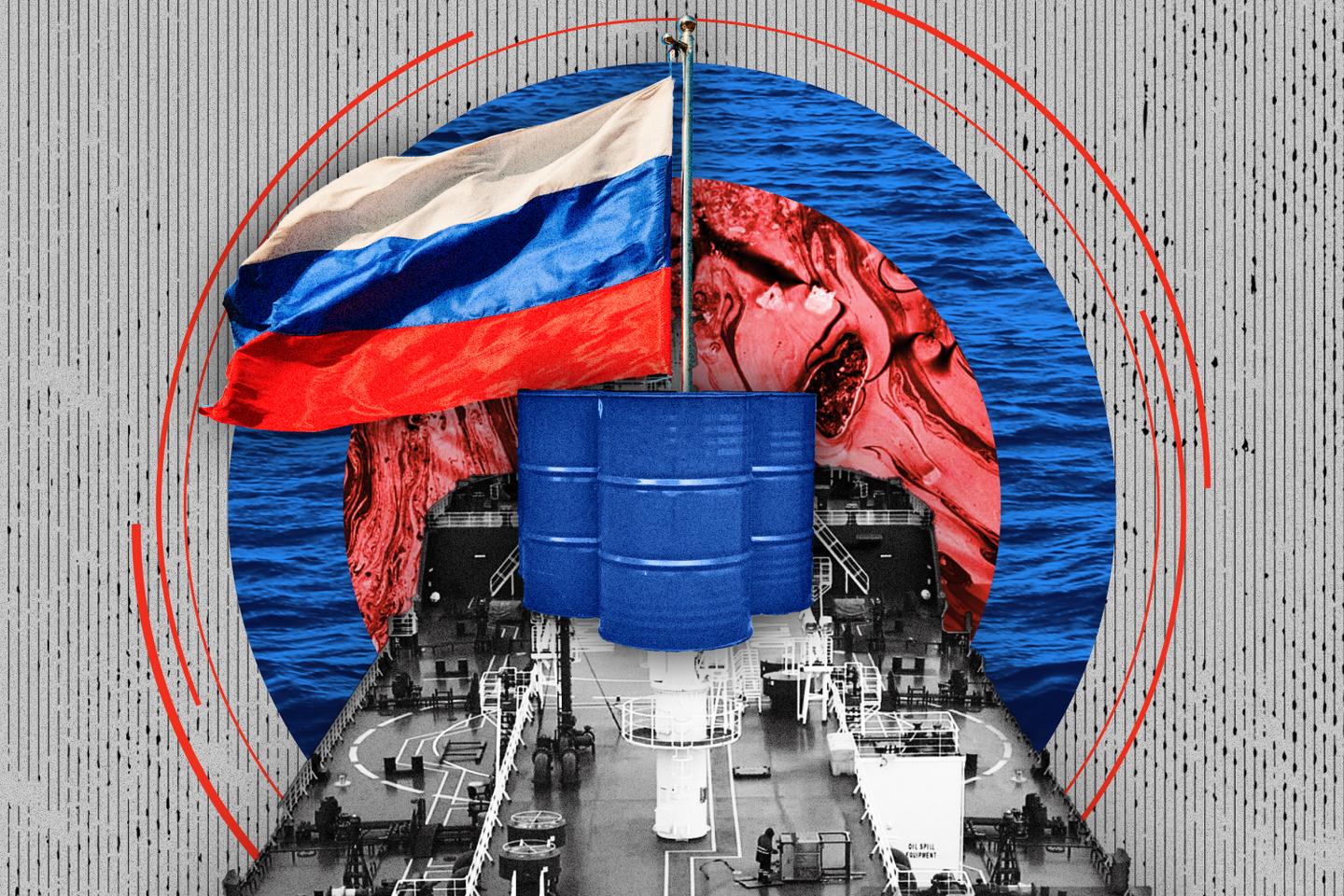


Are Western sanctions against Russian oil effective? This is a crucial question, given that hydrocarbon product revenues have been estimated as covering between 30% and 50% of the Russian state budget, and are largely financing its war against Ukraine. It is all the more so as sanctions are being circumvented and must constantly be reviewed.
Since Russia's February 2022 invasion of Ukraine, the European Union (EU) has adopted 14 packages of sanctions, ranging from confiscations of oligarchs' financial assets to a ban on exports of so-called "dual-use" products, which can be used to manufacture weapons. The EU has also banned imports of crude oil and petroleum products that are transported by sea from Russia, all while no European company is permitted to insure or provide services to ships carrying Russian oil purchased at above $60 (€55.56) a barrel, and $45 for petroleum products such as fuel oil and naphtha.
"The long-term objective is obviously for the war to stop and for Ukraine to be in a position to sign a peace agreement that suits it. But, in the medium term, with the sanctions, we want the war to cost [Vladimir] Putin's regime as much as possible," a source at the French economy ministry told Le Monde. Voices at the ministry have praised the embargo's effectiveness, highlighting that, from 2020 to 2023, the energy sector's contribution to the Russian budget fell by 25%.
However, the impact of the sanctions is diminishing by the day. The differential between Russian crude prices – in other words, the price of oil purchased in Russian ports – and the price of Brent crude, the North Sea crude oil that serves as a global benchmark, is narrowing all the time. The gap has narrowed from 30%, when the oil sanctions were implemented, to 6% today. The Russians now refuse to sell their oil at greatly discounted prices. Meanwhile, the price of Urals oil, the benchmark price for Russian exports, has hardly ever fallen below $60 a barrel. This would suggest that the sanctions imposed by the G7, which, in addition to the EU, includes Canada, France, Germany, Italy, Japan, the United Kingdom and the United States, are no longer being respected.
Some countries are more lax than others
While some measures have had long-term effects, such as the export ban on spare parts, which has hampered Russian maintenance of military equipment, the opposite is true for oil sanctions. According to the Kyiv School of Economics, revenue losses linked to the sanctions "have fallen considerably" in recent months, dropping from $8.6 billion, at the start of 2023, to $1.9 billion in mid-2024.
You have 61.24% of this article left to read. The rest is for subscribers only.
